Artefact 254
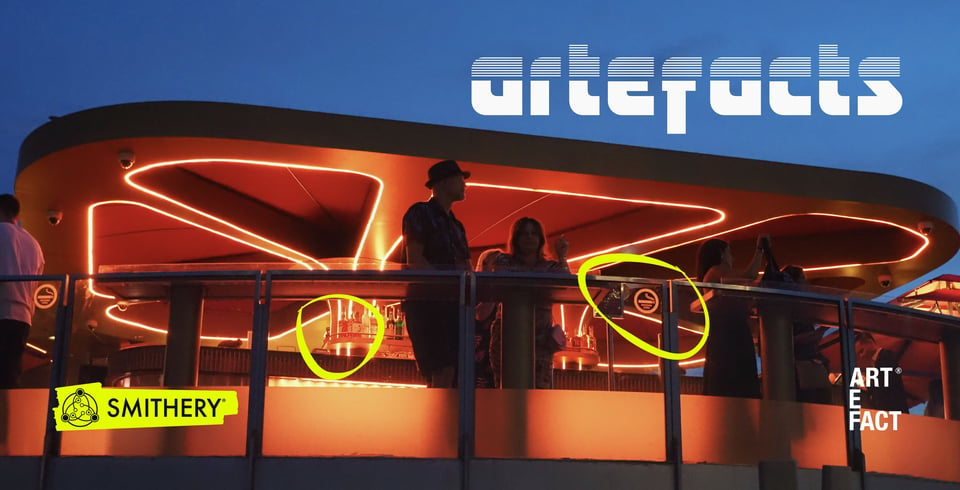
Organise, don’t agonise
I was reading Leah Reich’s excellent newsletter, Meets Most, this morning. And this phrase, from Anand Giridharadas’ reflections on Zohran Mamdani’s successful NYC Mayoral Campaign, jumped out at me:
“People want to be summoned to do more… they want to organize, not agonize”
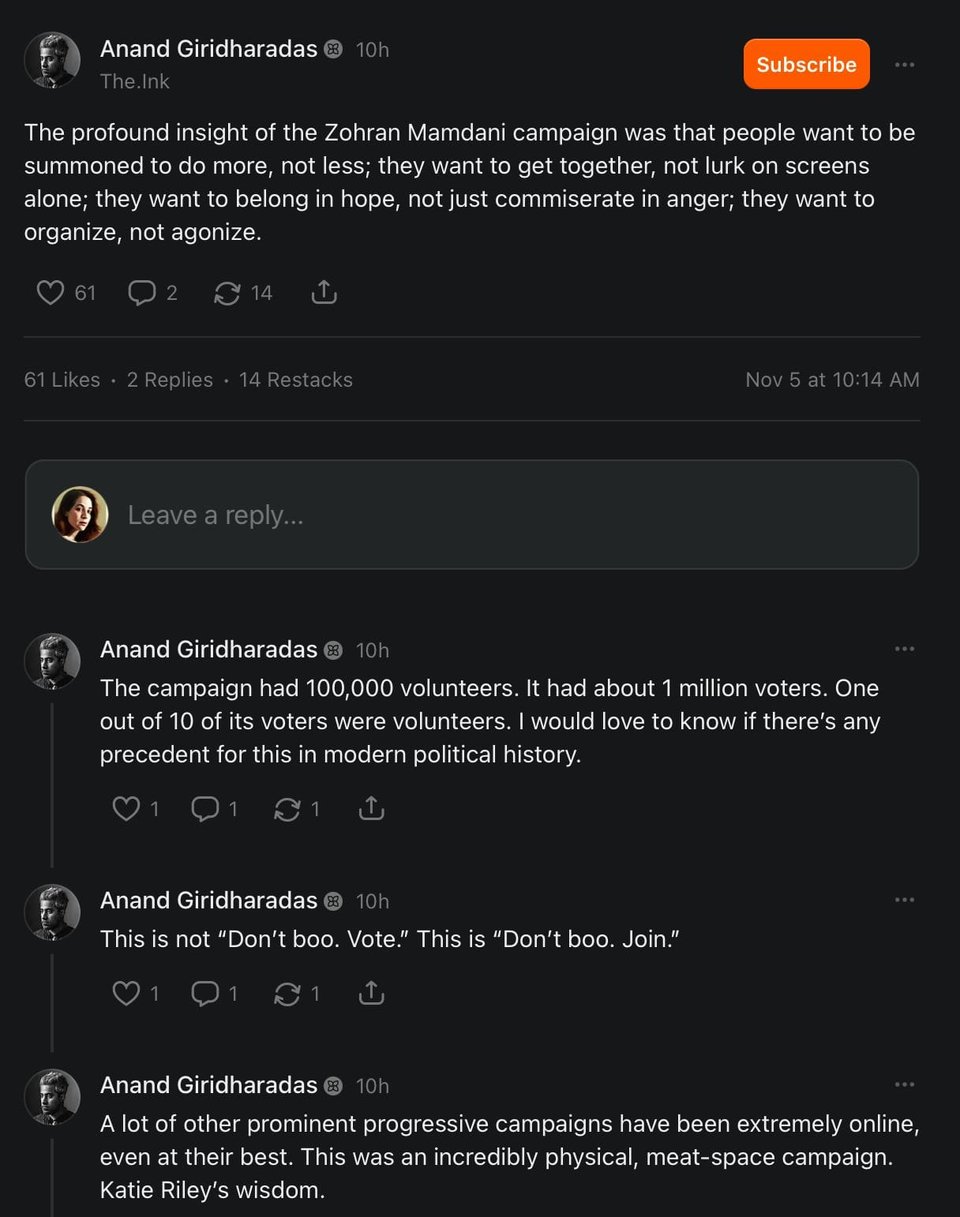
Given all of the things that I wanted to share with today, ‘organise, don’t agonise’ makes for the perfect theme. Let’s get on with it.
First STEPS into Bioregionalism
At lunchtime (UK) on Friday 7th November, Andy Thornton is hosting Hubert Fonteijn and Tony Elkington for The STEPS Collective.
They will be discussing their personal journeys into the regenerative space, specifically with a nod to Bioregionalism.
You’ll have to come along to find out who said in the preparation “I must admit that I have a love-hate relationship with that concept, tipping towards the latter at the moment…”
RSVP here, free as always:
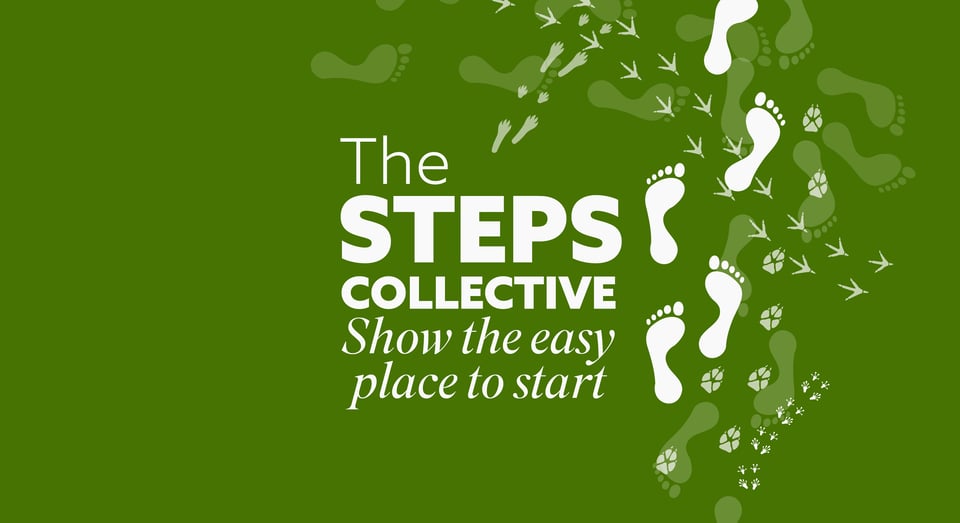
Thanks to Andy for organising, not agonising.
Oh, and there’s also a nice new shiny page for The Steps Collective over here. It has the previous recorded talks, upcoming events, backstory and the like. I suspect we will get around to making a proper website for STEPS at some point, but this is as good home for now.
Age of the Steward
Hardeep (H) Kaur has launched a Social Moonshot called Age of the Steward. We first met through a The STEPS Collective that Chris Daniel of Long Now London forwarded around their community.
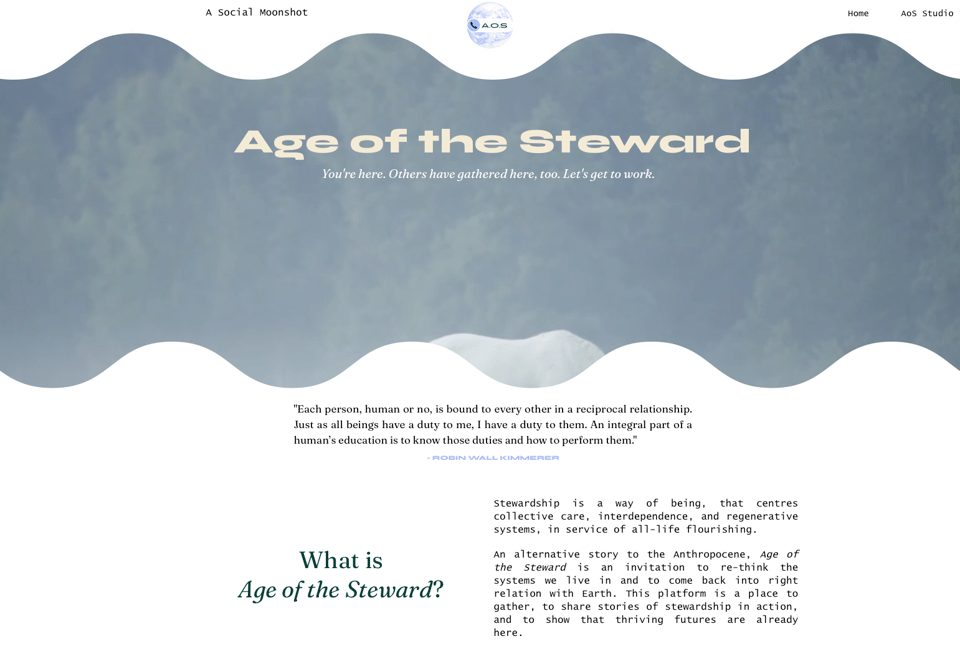
When we were talking about stewardship, H floated an idea. She was interested in starting something called Letters from a Steward, and asked if I would write one.
And so write one I did. I can’t resist being involved in a prototype. Then I printed the letter, and posted it; if it’s a letter, it needs to conform in some way to what that means.
Fast forward a month or so, and Hardeep invited me to read the letter aloud at an event called What Do I Owe The Cosmos?
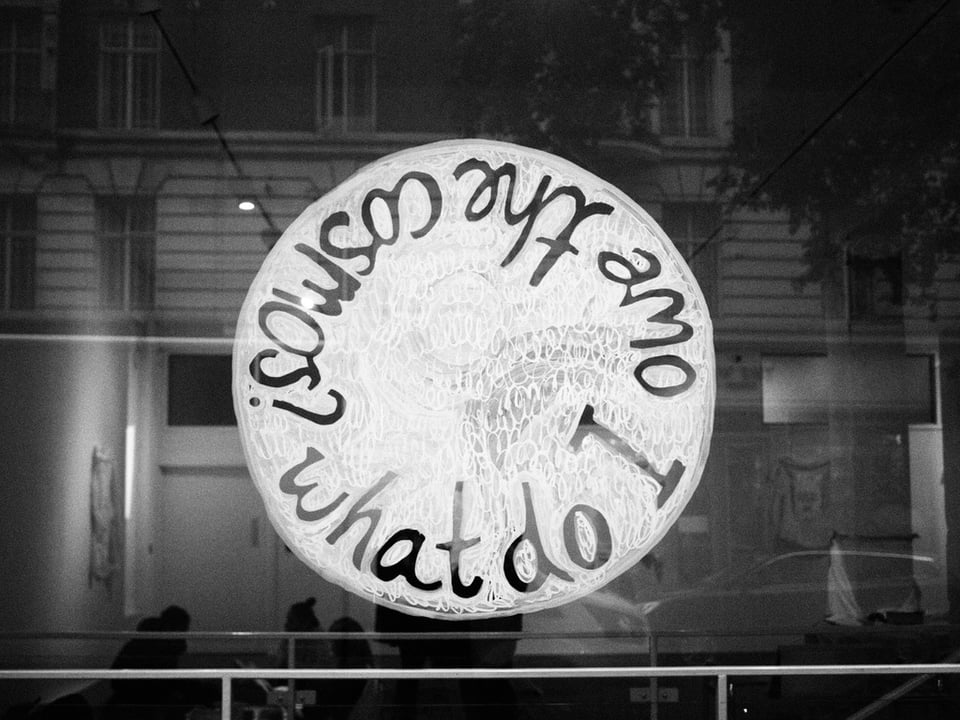
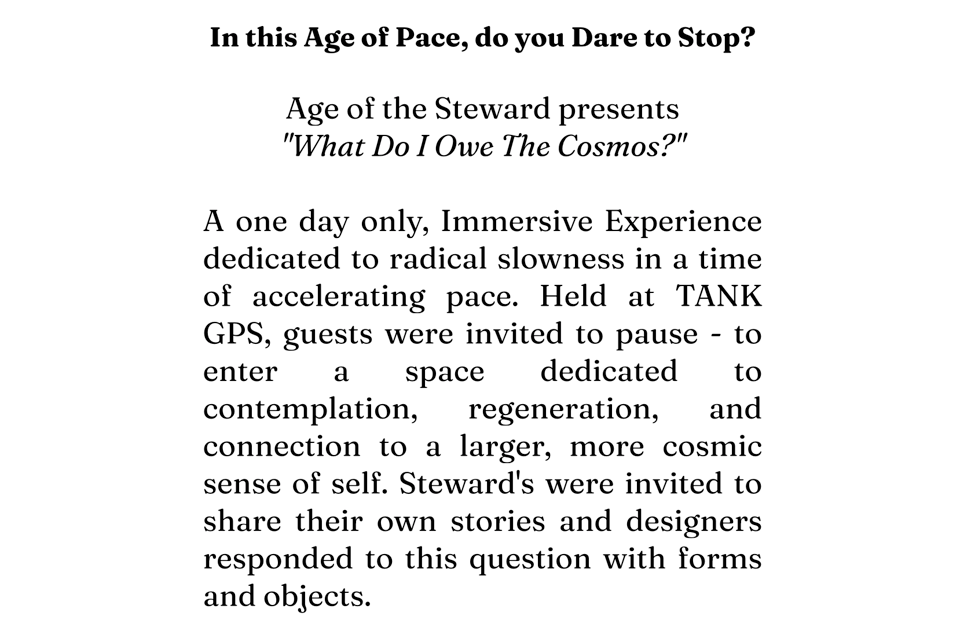
What did the letter say? Well, you’ll have to wait to read it and hear it on Age of the Steward very soon. But broadly, it was exploring the history and concept of the word steward, as well as the meaning of it for me in the various co-stewarding hats I appear to be wearing today.
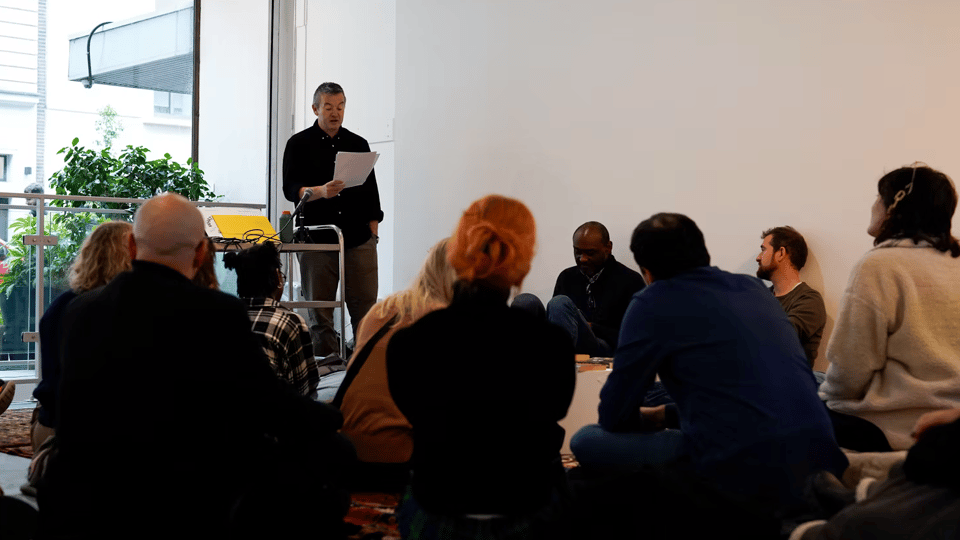
It was only the second time I’ve ever read a prewritten thing too. Usually I just create some slides, and say whatever words come to me in the moment. But I might try more of this formal approach in future.
I was honoured to share a platform with Tiffanie Darke and Rob Shorter of DEAL too. Tiffanie made a brilliant suggestion on one question that might be missing from the Obliquiscope - “what happens at the end of life”?
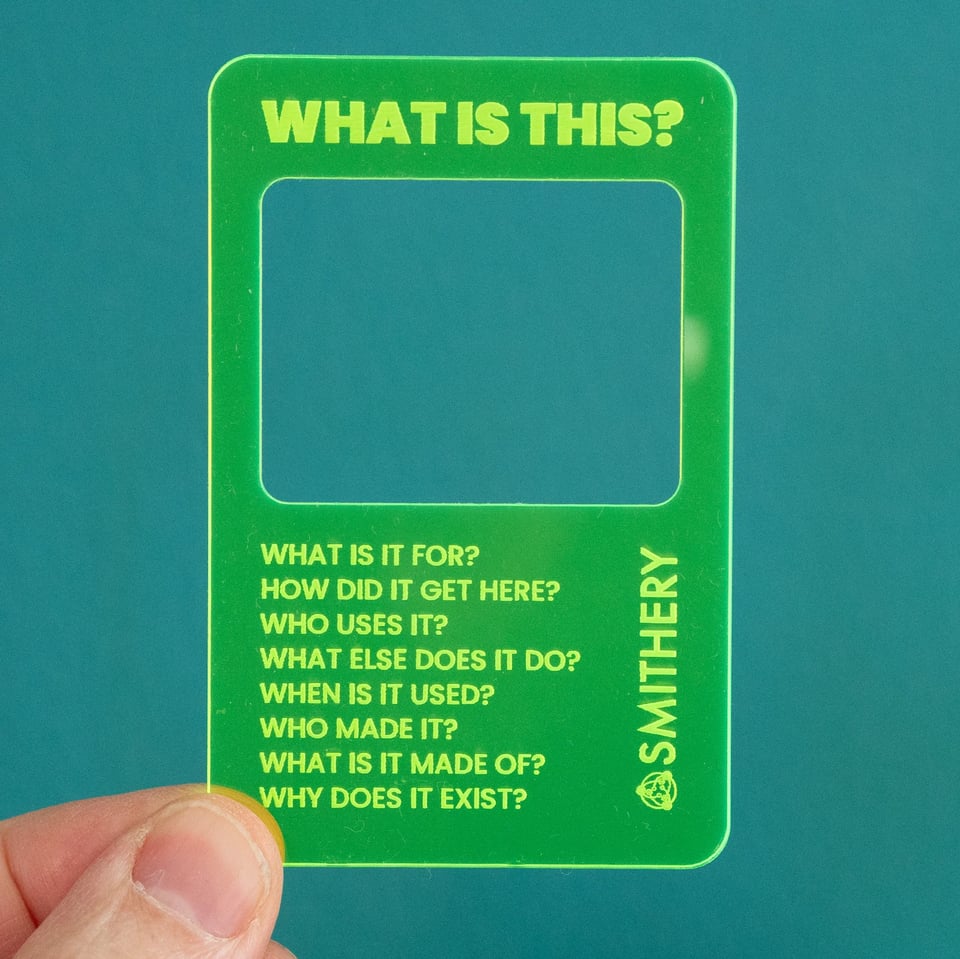
And Rob and I were chatting about his community work around Doughnut Economics. This has reminded me that I really should go back and surface the Community Power Compass work again, after I shared it with Rob post event.
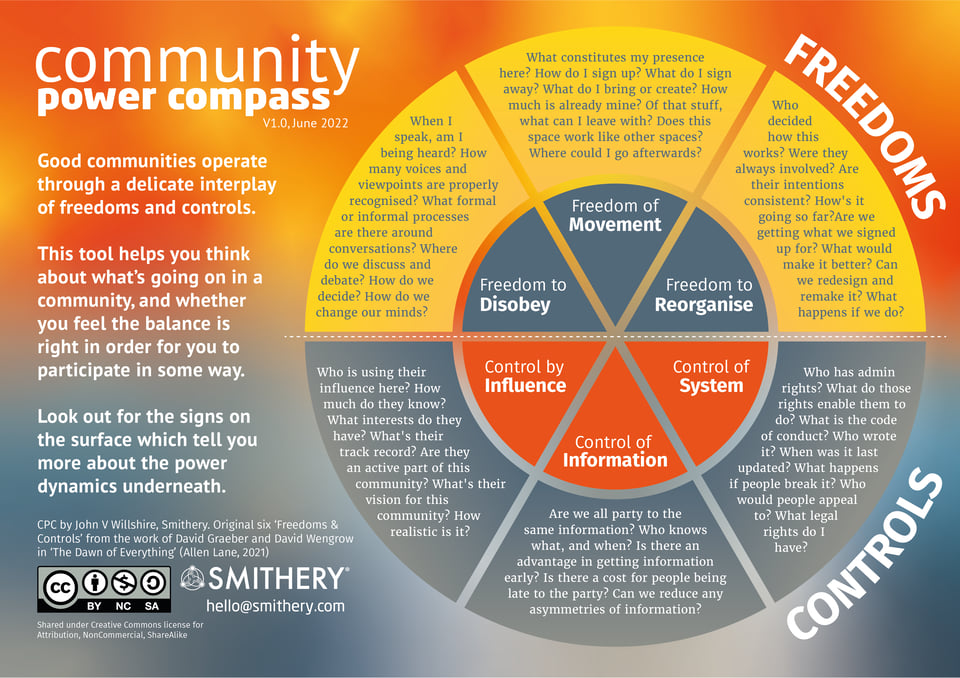
If there’s anything I’ve ever made that helps people start thinking about their community work in a way that helps them get on with it, it’s probably the Community Power Compass. if you want to know more, let me know.
Thanks to H for organising, not agonising.
[y]our2040 - Regenerative Triangulation
Next week - Tuesday 11th November, 17:00 GMT - I’ll be joining the fine folks at [y]our2040 to talk about Regenerative Triangulation, and run a little bit of an experimental workshop too.
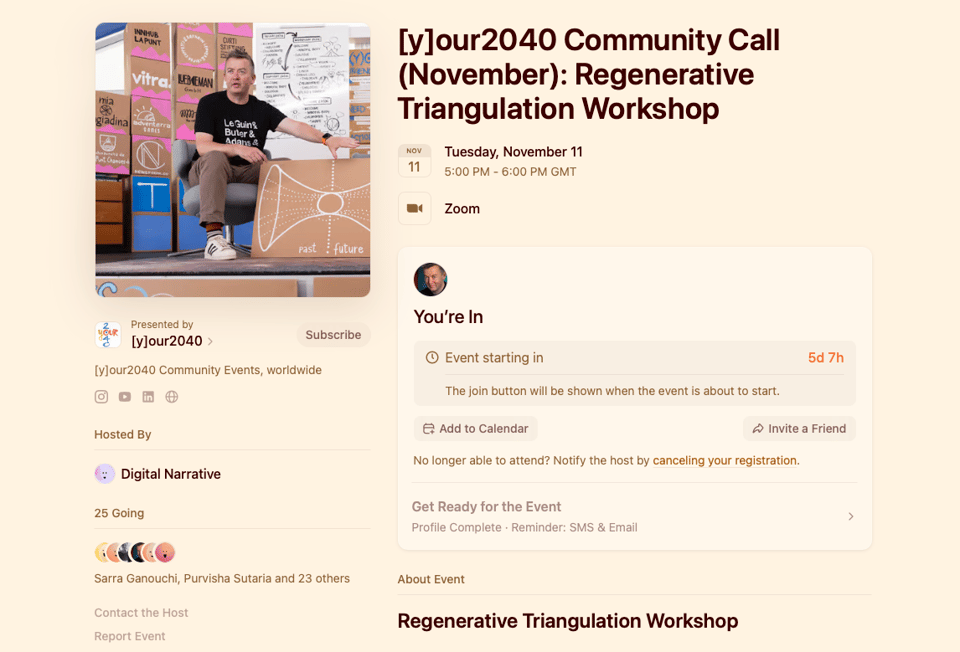
Regenerative Triangulation is basically the idea that led to the blog post, that led to the STEPS Collective, that led to… well, lots of things.
The one thing I have found since writing the original blog post is that it is a really hard thing to hold three priorities of environmental economic and social regeneration in mind at the same time.
My plan is to make Tuesday’s session about that difficulty in particular, share some ideas of my own, and then invite the attendees to discuss and share ways they have, or might try, to do this.
For instance, one of the ways I’ve tried to do it in the past is through language.
Taking the famous Charles and Ray Eames motto – The Best For The Most For The Least – I tried to shape a regenerative version; How do we get to the healthiest environment, with the greatest economy, for all in society?
This idea is on the reverse of all the cards in the Regenerative Design Field Kit.
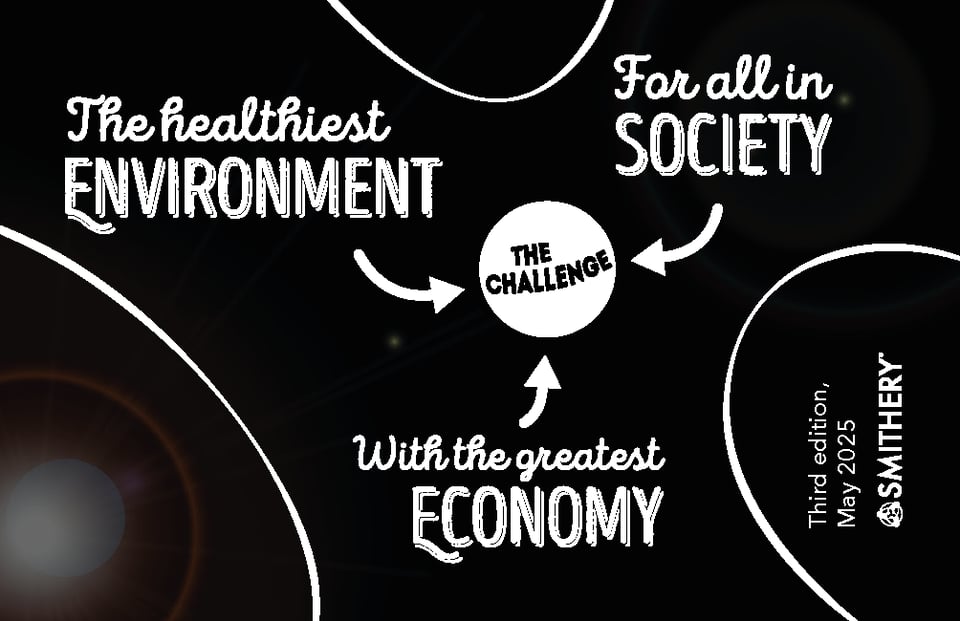
This week though, I started thinking about payoff matrices and triads.
If you have three factors of concern (environmental, social, economic), each of which has a series of different levels you can aim for, how do those relate..?
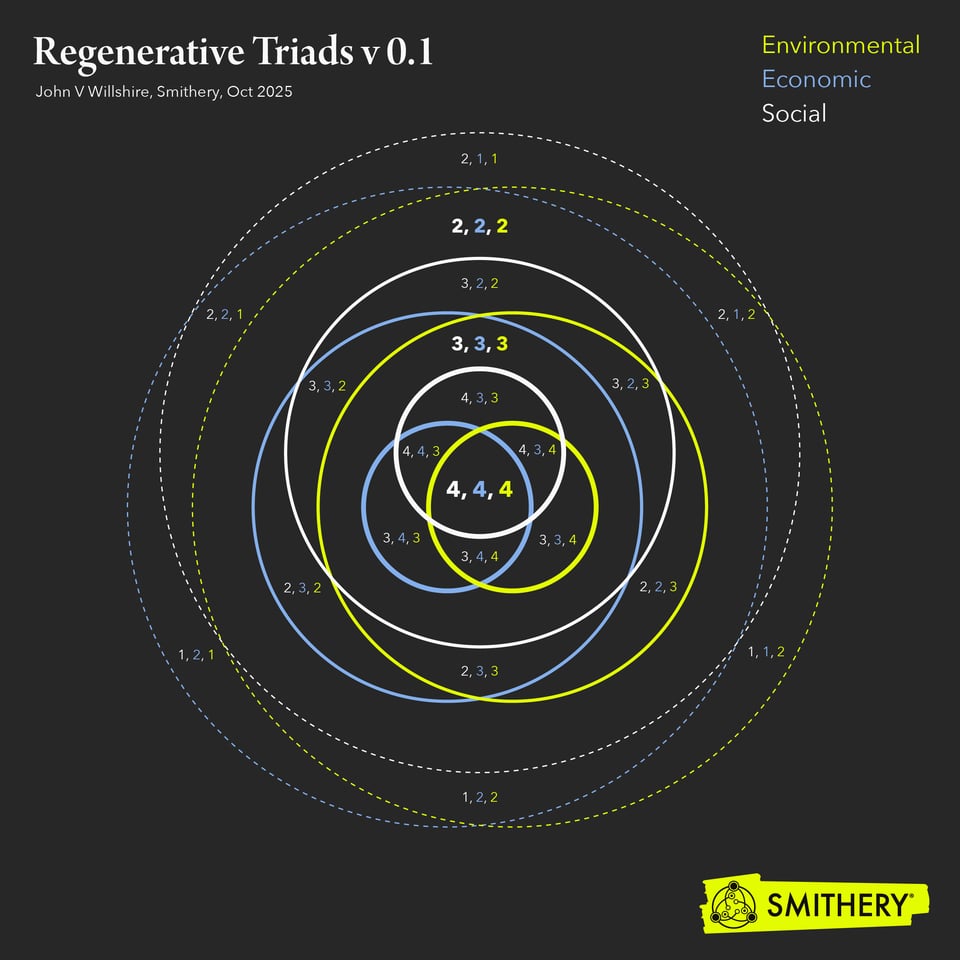
I made the following diagram last night, which initially looks like a really unhelpful and complex thing to drop into any workshop without thirty minutes of explanation.
But there’s something in here which speaks to be about pathways, proximities and explorations.
Tune in next week to see if we get anywhere with it.
Thanks to Jonelle and Chris for organising, not agonising.
Bright Spots in Sussex
Finally this week, two pieces of Sussex news.
(This is a bit like the ‘and now for the regional news where you are’ thing, isn’t it?)
First of all, our little Nature Watch project, which grew out of us rewilding our garden, has been selected as one of Forum for the Future’s Bright Spots in the Future of Sustainability project in partnership with The Earthshot Prize, Rockefeller Philanthropy Advisors and Trane Technologies.
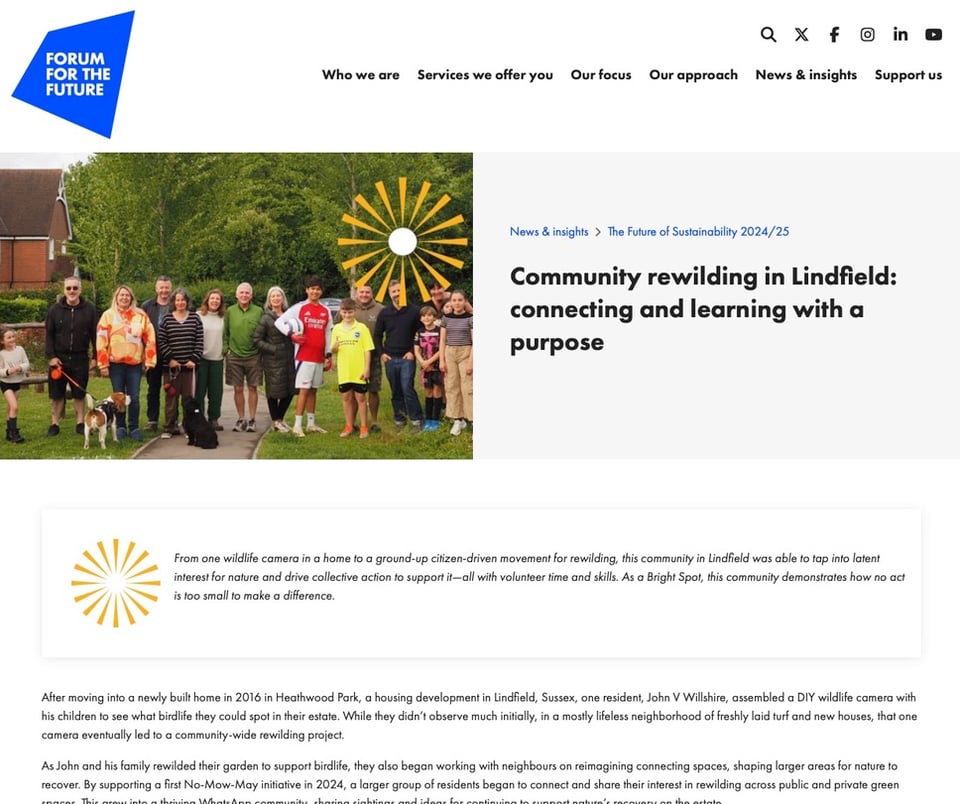
I’m not sure that when we started digging borders and making a pond out of an old washing up basin, this is what Helen and I had in mind. But if ever there was a personal lesson in just starting things, this might be it.
Thanks to Jordan and Kristin for organising, not agonising.
And secondly, after some initial discussions around the idea of a modern Sussex Charter in the summer, things have been moving along.
Richard Freeman started connecting a group of interested folks around the region who were interested in the kind of place Sussex was, is, and could be in the future. After some really good discussions, ideas and the like, we’re exploring ideas under the banner of the Sussex Futures Network.
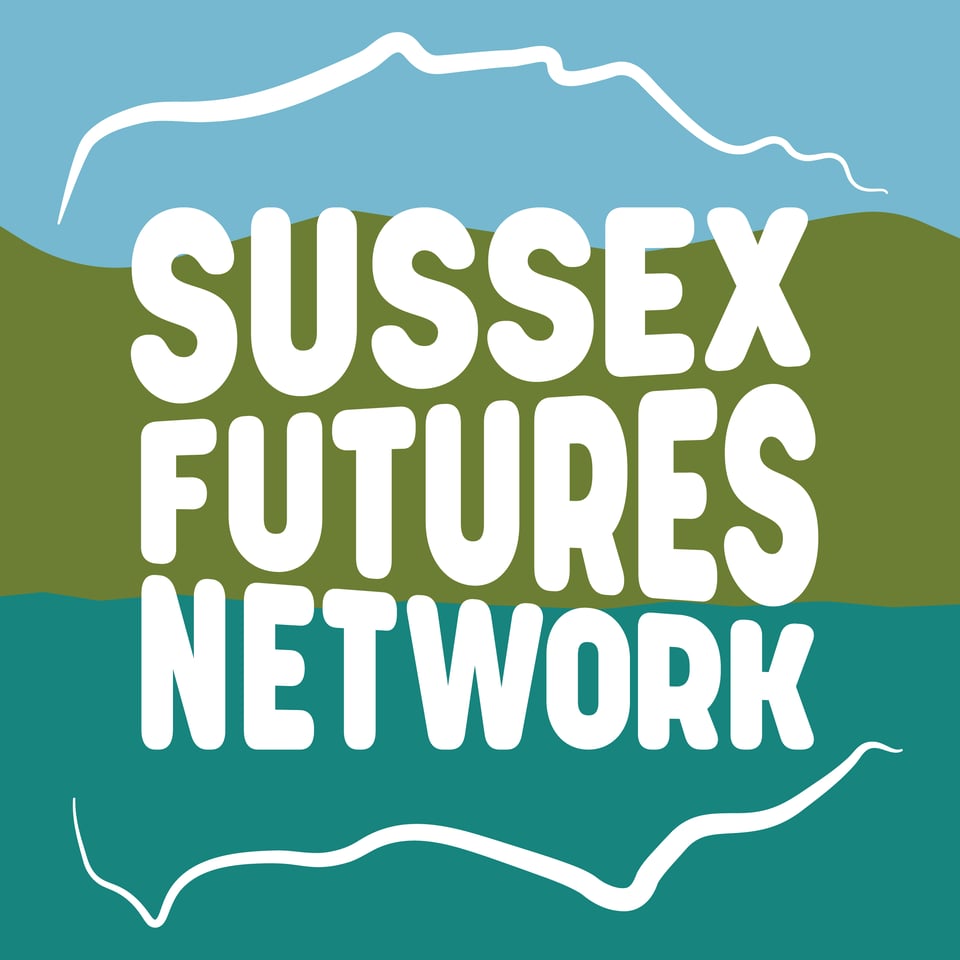
One of the first experiments is called We Wunt Be Druv.
It will be some kind of in-person, playful experience that we’re currently designing alongside Our House (a ‘people-powered movement for political systems change expressed through new People’s Charters’). Thanks to Jon Alexander for introducing spotting the connection and joining the dots.
If you are in Sussex, and might fancy taking part, please sign up here for more details - we’ll send something out before the end of the year.
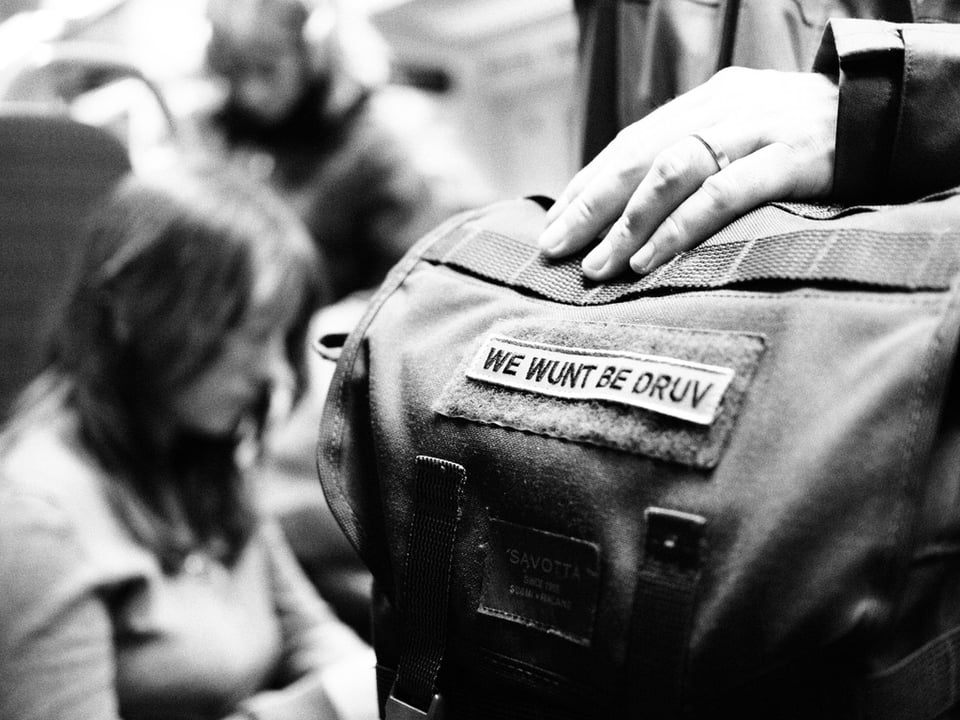
Thanks to Richard and the rest of the emergent Sussex Futures Network for organising, not agonising.
One final thought.
As I look back up this newsletter, and think of all the people organising things that I can mention in future dispatches, it gives me hope. To repeat Anand’s words:
People want to get together, not lurk on screens alone.
People want to belong in hope, not commiserate in anger.
People want to organise, not agonise.
What might you organise next week? Next month? Next year?
Who might it be with? Friends? Strangers? Colleagues? Family members? Neighbours?
And to get started, what’s the lightest invitation to a thing that you might extend to others?
Until then.
John V Willshire
6th November 2025